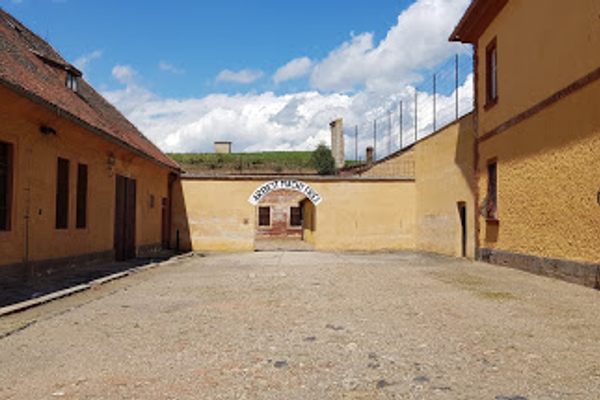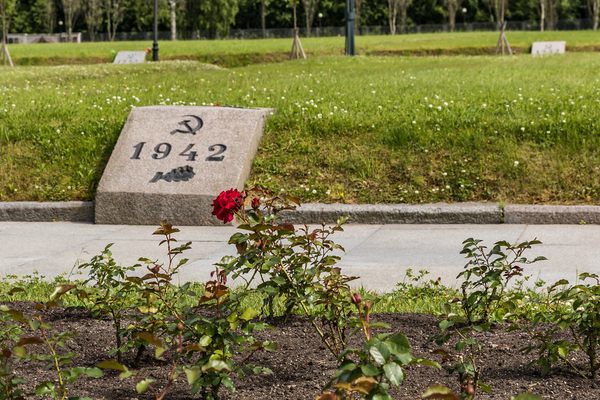Robert Jackson Center
This institution pays tribute to an associate justice who protected civil rights and prosecuted Nazis.
After a morning at the National Comedy Center or Lucille Ball Museum, visitors to Jamestown, New York, should take a trip to the other side of town to visit the more staid Robert Jackson Center. Here, one can appreciate the defender of freedom of speech and protector of civil rights who helped make the National Comedy Center possible.
Justice Jackson was not only one of the most influential associate justices on the Supreme Court in history, he was so remarkable as to merit a fictional portrayal by Spencer Tracy and a historical one by Alec Baldwin. Perhaps best known today for being the chief prosecutor at the Nuremberg Trials, Justice Jackson’s opinions and dissents continue to directly guide the court to this day.
Appointed to the Supreme Court in 1941, Justice Jackson earned his position after long service as a private attorney in Jamestown and later as U.S. Solicitor General and Attorney General, all without the benefit of a formal law degree.
The Jackson Center, which was founded in 2001 and located just down the street from where Jackson began his law practice, contains a variety of permanent and rotating exhibits. The exhibits feature his most famous decisions and dissents and puts him squarely at the center of the U.S.’s most important legal battles. It also hosts annual events, including lectures and reading competitions for students.
A prime example is when Jackson established himself as a champion of First Amendment rights for school children in the landmark case West Virginia State Board of Education v. Barnette in in 1943. He famously wrote: “If there is any fixed star in our constitutional constellation, it is that no official, high or petty, can prescribe what shall be orthodox in politics, nationalism, religion or other matters of opinion or force citizens to confess by word or act their faith therein.”
This position laid the groundwork for Jackson’s most widely cited decision in Youngstown Sheet & Tube Co. v. Sawyer in which he formulated a three-tiered test for limiting Presidential power. Such passages as the one in Barnette also cemented Jackson’s reputation as one of the best writers on the Court.
However, his dissent in Korematsu v, United States in 1944 has become a prime example of judicial independence when he broke with the President and six of his colleagues over the now discredited Executive Order 9066 which permitted Japanese internment. Adhering to the law and rejecting political pressure, Jackson repudiated the majority opinion as “one of the most sweeping and complete deprivations of constitutional rights in the history of this nation.”
After World War II, Jackson took a leave of absence from the Court to serve as the Chief Prosecutor of Nazi war crimes in the Nuremberg Trials, as appointed by President Truman. Jackson began by drafting the London Charter of the International Military Tribunal, the first codification of “crimes against humanity,” which has been central to international humanitarian law including the Geneva Conventions.
Jackson’s tenure on the Court ended in 1954 when he died of a myocardial infarction. His funeral in Jamestown was the last time all Supreme Court justices traveled together, and he was buried in nearby Frewsburg, New York. His epitaph reads, “He kept the ancient landmarks and built the new.”
Plan Your Trip
The Atlas Obscura Podcast is Back!


















Follow us on Twitter to get the latest on the world's hidden wonders.
Like us on Facebook to get the latest on the world's hidden wonders.
Follow us on Twitter Like us on Facebook